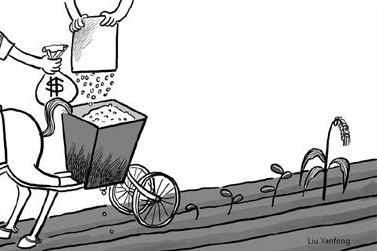New deal for farmers can tackle food crisis
Many poor, food-importing countries around the world have become desperate in recent months, as global prices of rice, wheat, and maize have doubled. Hundreds of millions of poor people, who already spend a large share of their daily budget on food, are being pushed to the edge. Food riots are mounting.

But many poor countries can grow more food themselves, because their farmers are producing far below what is technologically possible. In some cases, with appropriate government action, they could double or even triple food production in just a few years.
The idea is basic and well known. Traditional farming uses few inputs and gets poor yields. Poor peasants use their own seeds from the preceding season, lack fertilizer, depend on rain rather than irrigation, and have little, if any, mechanization beyond a traditional hoe. Their farms are small, perhaps one hectare or less.















